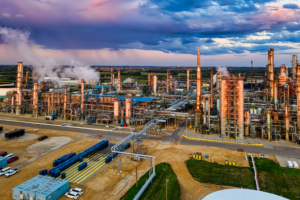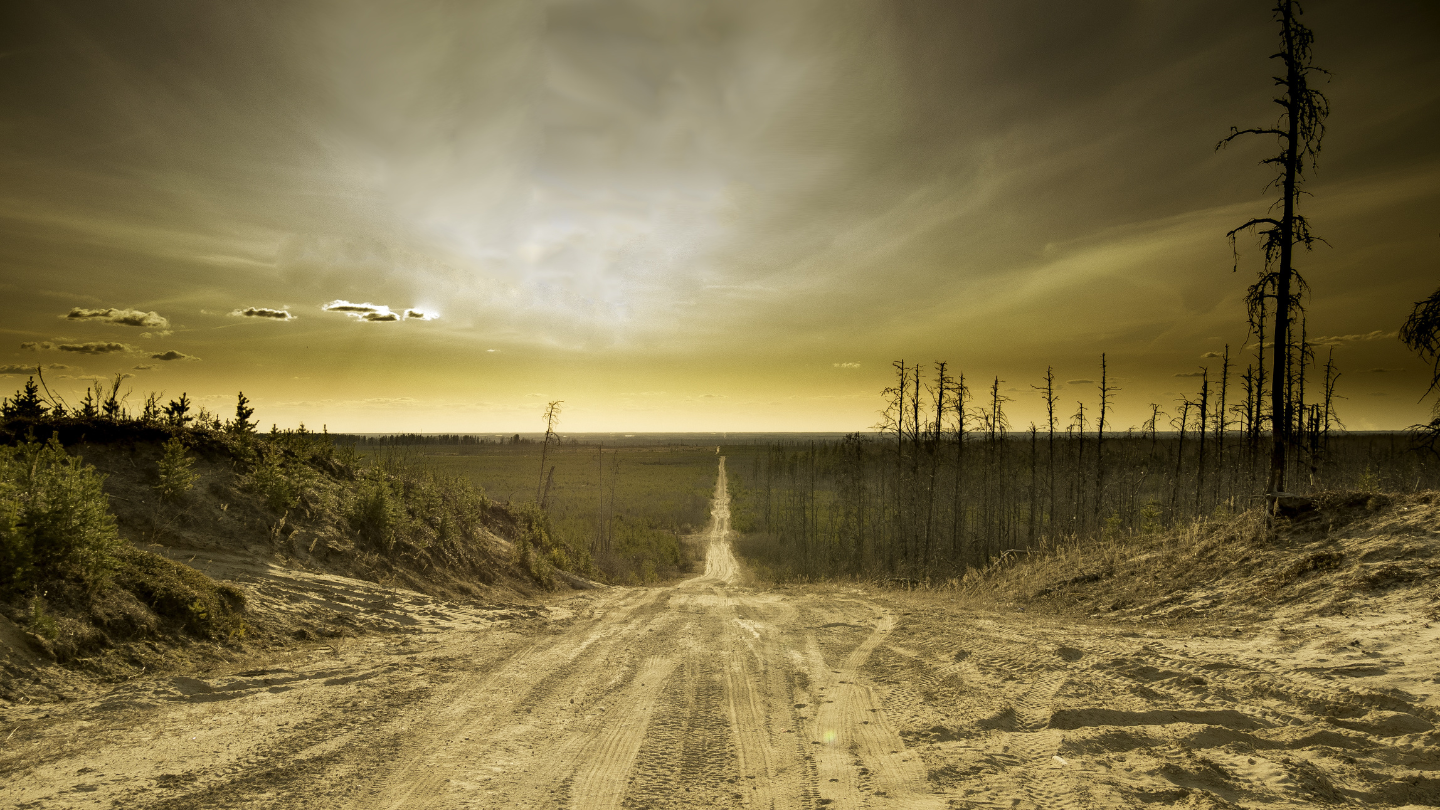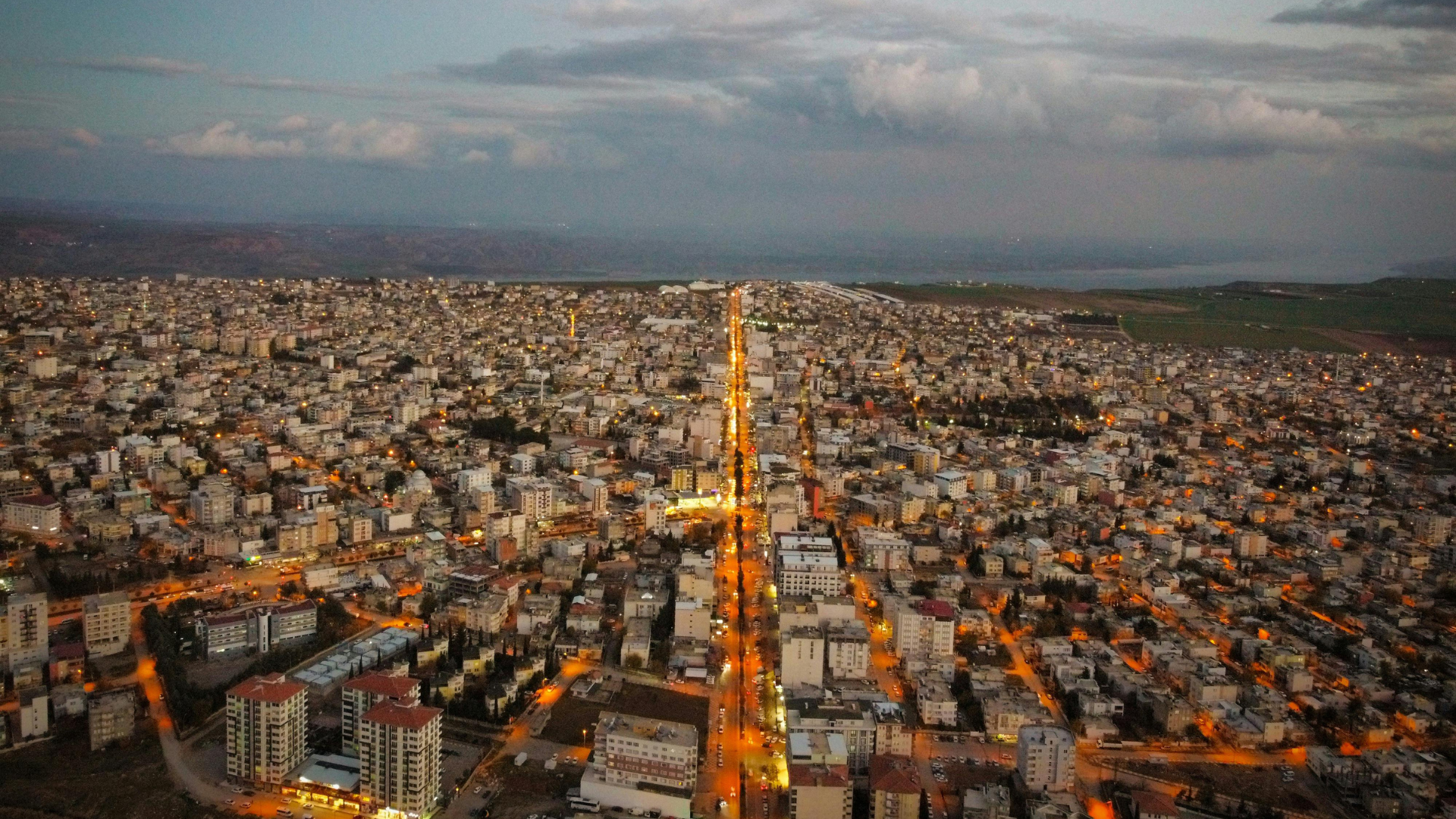Our environment is rapidly deteriorating while political leaders are increasingly deprioritizing environmental action in favor of short-term nationalist interests. Past predictions that we are heading for global societal collapse suddenly don’t seem that unlikely. Is there still hope?
A growing sense of impending doom
In February 2024, I published a blog post on the possibility of global collapse, reviewing predictions scientists had made in the seminal 1972 scientific report The Limits to Growth about consumption and population trajectories.
Using computer models developed at the Massachusetts Institute of Technology (MIT), the authors showed that continuing with business as usual would likely lead to “a rather sudden and uncontrollable decline in both population and industrial capacity” within a century.
 Recent independent analyses of the accuracy of the MIT models indicate that humanity’s trajectory since the 1970s has indeed been closely following a path that eventually leads to collapse, or at the very least, a drastic reduction in human welfare. [Read the blog post to learn more about this.]
Recent independent analyses of the accuracy of the MIT models indicate that humanity’s trajectory since the 1970s has indeed been closely following a path that eventually leads to collapse, or at the very least, a drastic reduction in human welfare. [Read the blog post to learn more about this.]
The collapse article quickly became one of our most viewed website pages, indicating that many people are thinking about this issue. I was curious to hear whether others believe we might be close to the precipice, or whether they view these predictions as overly pessimistic, so I invited readers to share their thoughts at the bottom of the blog post.
Only one of the people who submitted responses to the article expressed that they find collapse predictions too pessimistic. This reader reflected a “techno-optimist” perspective, assuming rapid progress on and deployment of clean energy technologies.
All other submissions stated that they are very worried about the state of the world and believe we are moving towards collapse.
A worrying shift in our political landscape
Our world has arguably changed significantly for the worse since the publication of that blog post, with the election of a US president who seems intent on destroying the environment, stripping away human rights, withdrawing support from vulnerable and marginalized groups, and undermining scientific progress.
Even worse, as Moira Donegan wrote for The Guardian,
“Checks on executive power seem to have all but vanished; the Trump administration is not acting like either the courts, the judiciary or the people have any prerogatives that they must respect.”
The United States’ alarmingly rapid descent into fascist authoritarianism does not provide a lot of hope for averting collapse, nor does the fact that the rise of the far right is not restricted to the US. In Europe as well, rightwing populists who prioritize short-term nationalist interests over long-term welfare and sustainability are carving out ever more political power. Several of our blog readers stated that our current political landscape makes it hard to be optimistic.
John O. wrote, for example,
“It is difficult to be optimistic in view of the path the United States is now following under the leadership of an incompetent confirmed anti-environmentalist.”
Maria A. noted,
“I do agree that mankind is headed for the cliff. Our current politicians are aiming for total destruction of all norms.”
And Richard H. said,
“I do think we are headed for collapse, especially given the institutionalization of short-term thinking in late capitalism, the oil industry grip on global politics and the massive inequity forcing mass migration.”
Widening inequality as a catalyst
I want to discuss Richard’s important point about massive inequity. Other readers brought this up too — Sara G., for example, expressed concern over “the increasing concentration of wealth in the hands of fewer people.” Researchers have documented that collapse is almost always preceded by rising inequality (and that this is also tied to a rightward political shift).
In his new book, Goliath’s Curse: The History and Future of Societal Collapse, published in September, Dr. Luke Kemp at the University of Cambridge’s Centre for the Study of Existential Risk analyzed the rise and collapse of more than 440 societies over 5,000 years.
He concludes that the path to collapse begins when power-hungry people who are willing to use violence and intimidation to achieve it amass and monopolize resources, causing vast inequality. These people tend to embody the “dark triad:” psychopathy (callousness and lack of empathy), narcissism (an overinflated ego), and Machiavellianism (a willingness to manipulate others for their own political gain). Sounds familiar, doesn’t it?
Dr. Kemp explains,
“As elites extract more wealth from the people and the land, they make societies more fragile, leading to infighting, corruption, immiseration of the masses, less healthy people, overexpansion, environmental degradation and poor decision making by a small oligarchy. The hollowed-out shell of a society is eventually cracked asunder by shocks such as disease, war or climate change.”
Dr. Kemp argues that we wouldn’t have to deal with many of the existential threats we face today if it weren’t for extreme global economic inequality. And of course, not all existential threats are environmental. For example, construction of planet-killing nuclear weapons and rapid artificial intelligence (AI) development require vast amounts of cobalt, most of which is mined in the Democratic Republic of the Congo (DRC). Such huge mineral quantities would not be easy to amass if DRC cobalt miners were paid decent wages, says Dr. Kemp.
We stand at a particularly dangerous point in time because today’s globalized civilization is so deeply interconnected and we face more existential risks than ever before. The long-present threat of nuclear war has been joined by catastrophic climate change, the sixth mass extinction, pandemics, AI, and the rise of authoritarianism. Dr. Kemp contends that “the future of collapse looks far grimmer than the past.”
Can we still escape collapse?
Despite the direness of the mess humanity has created for itself, “there is always hope,” as Aragorn would say (yes, I am one of those Millennials who turn to The Lord of The Rings movies for comfort).
Dr. Kemp believes we need to build strong democracies to prevent people with “dark triad” tendencies from taking power, and to build societal resilience. He proposes scaling up citizen juries and assemblies, for example, that would stop corporations from making selfish, profit-driven decisions that cause significant harm to the public and the environment.
At the individual level, his advice in a nutshell is: “If you want to save the world then the first step is to stop destroying it. In other words: don’t be a dick.” He says, don’t work for fossil fuel or big tech companies, or arms manufacturers, that are contributing to global destruction. He also states that we need to change how we measure progress.
Many brilliant thinkers in the “metacrisis” space (the metacrisis describes the underlying, interconnected dynamics that have given rise to all of humanity’s most pressing problems, which together are known as the “polycrisis”) have made similar conclusions: we need a paradigm shift that changes what people value and strive towards. Some refer to this necessary transformation as a “Second Renaissance” or the “Great Turning,” and the new, improved operating system for humanity that will emerge from either collapse or transformation as “Game B” (where Game A is the status quo). [You can find a glossary of terms here.]
The need for inner transformation
Capitalism has conditioned us to value materialism and to try to consume as much as possible, while we view rapid GDP and population growth as indicators of societal progress. Metacrisis thinkers argue that what we really need to feel happy and fulfilled, however, is community, close relationships, good health, and a clean and thriving environment. This means that progress should not be measured based on growth but on things like wellbeing and sustainability.
The basic idea of moving beyond the problematic paradigm of modernity (and the high likelihood of collapse that it entails) is that we need inner as much as outer transformation.
Reasons for hope
I find it very encouraging to see these types of research and ideas rapidly gaining traction. Countless people are concerned about the state of the world and want to help build a better future, and they are finding each other in online spaces and intentional communities. If you want to become part of this movement, I encourage you to search the web for any of the aforementioned terms (e.g. Second Renaissance, Game B), and join a virtual discussion group and/or find out what is happening locally in your area.
I want to touch on one last thing — the techno-optimist blog reader mentioned at the beginning of this article who stated that he doesn’t believe we are headed for collapse also made a very important point: global population growth is flattening out and is projected to end in the second half of this century. The combination of relentless population and consumption growth underlies all of our environmental crises. The fact that one of these driving factors may soon disappear thanks to people voluntarily choosing smaller families is indeed a powerful reason for hope.


 Recent independent analyses of the accuracy of the MIT models indicate that humanity’s trajectory since the 1970s has indeed been closely following a path that eventually leads to collapse, or at the very least, a drastic reduction in human welfare. [
Recent independent analyses of the accuracy of the MIT models indicate that humanity’s trajectory since the 1970s has indeed been closely following a path that eventually leads to collapse, or at the very least, a drastic reduction in human welfare. [
